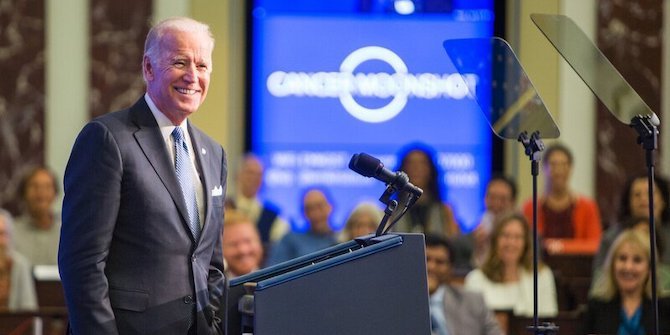According to Joe Biden, he is “optimistic” about the possibility of reaching a Gaza ceasefire agreement.
After the most recent round of negotiations, the US president declared, “We are closer than we’ve ever been,” and he announced that his secretary of state would travel to Israel to carry out additional “intensive efforts to conclude this agreement.”

Speaking amid worries that Iran would strike Israel in retaliation for Ismail Haniyeh, the leader of Hamas, being killed in Tehran, Mr Biden stated that “no one in the region should take actions to undermine this process.”
Hamas has voiced doubts about the likelihood of a deal. Additionally, Israel stated that it “appreciates the efforts of the US and the mediators to dissuade Hamas from its refusal to a hostage release deal” without addressing the prospect of a truce.
In reaction to an extraordinary onslaught on southern Israel on October 7, in which over 1,200 people were killed and 251 held hostage, the Israeli military launched a war in Gaza to eliminate Hamas.
Since then, the health ministry in Gaza, which Hamas governs, has reported over 40,000 deaths in the region.
A week-long truce and the release of over 240 Palestinian detainees from Israeli jails were the terms of a ceasefire agreement reached by Hamas in November. According to Israel, 111 captives are still being detained, 39 of them are thought to be dead.
The US, Qatar, and Egypt said in a joint statement that they had put up a plan for a ceasefire and hostage-release agreement that “narrows the gaps” between Israel and Hamas.
Israel has stated that any agreement on a ceasefire would need to include the return of all remaining captives that the militants took during their raid on Israel on October 7. It is believed that some of the 251 hostages have already perished in Gaza, while others have already been freed.
The ongoing negotiations are being referred to by relatives of hostages who are still in Gaza as the “last chance” to free some of them.
With thousands of lives lost and ten months of fighting, there is immense pressure for a breakthrough.
Should negotiations between Israel and Hamas fail completely, there’s a significant risk of escalating into a broader regional conflict, which is a major concern for all parties involved.
According to the mediators, the ceasefire talks during the previous two days were “serious, constructive, and conducted in a positive atmosphere.”
Before senior government officials meet again in Cairo in the hopes of reaching an agreement on the terms outlined in Doha, technical teams are scheduled to continue working over the next several days on the specifics of how to implement the suggested arrangements.
Even while the mediators’ declaration is undoubtedly a step in the right direction, much work needs to be done before a ceasefire is decided upon.
Not everyone shares Mr. Biden’s cautious optimism, as he has previously stated that he believed a deal was close.
In reaction, neither the Israeli government nor Hamas have been quite so optimistic.
According to a senior Hamas official who spoke to the BBC, Israel has essentially softened some of its demands regarding the freedom of movement of individuals within Gaza in the case of a truce and the continuation of Israeli military rule over strategic areas of the territory.
Israel claims its stance and guiding ideas are “well-known” and have not altered. It said that Hamas was refusing to consent to a plan that would have freed the detainees.
Israelis’ top priority is the rescue of the remaining hostages, although many do not believe that this is Israeli Prime Minister Benjamin Netanyahu’s main objective. He has maintained that the top goal for his government is a “total victory” over Hamas.
Yaya Sinwar, Hamas’s new leader, has yet to show many indications of willingness to give in.
A top Hamas official told the BBC that while the group did not take part in the negotiations, it was in contact with Egyptian and Qatari authorities and that there had not been “a commitment to implement what was agreed upon” during July’s meetings in Doha.
It is believed that during those negotiations, Hamas abandoned its demand for an ongoing truce in favour of Mr Biden’s suggestion of a six-week break, during which a peace agreement might be negotiated.
In addition, the withdrawal of Israeli forces from all populated areas of Gaza, the gradual release of hostages in exchange for Palestinian captives, and the return of the remains of murdered hostages were all part of Mr Biden’s ceasefire proposal.
A week later, Hamas claimed that Israel had added new requirements. However, it is believed that they are still willing to review the earlier agreement.
US Secretary of State Antony Blinken will negotiate on the “bridging proposal” that the US, Egyptian, and Qatari negotiators put up in the region. This proposal should serve as the foundation for the upcoming meetings in Cairo, which all parties—including Hamas—are anticipated to attend.
According to reports, this plan “closes the remaining gaps” between the stances of the two parties, which may enable “a rapid implementation of the agreement.”
Though it may seem simple, there are significant challenges ahead, and senior Israeli and Hamas figures still lack mutual trust.
Others, possibly against their will, are dragging them to the table out of fear of what might occur if they fail.
As for Israel’s military action in Gaza, it is still ongoing. According to the Palestinian Civil Defense Authority, a rescue agency, an airstrike early on Saturday morning killed fifteen individuals in the al-Zawaida neighbourhood of central Gaza.
Mahmud Bassal, the spokesman, told the AFP news agency that among the dead were three women and nine children.
Israel has not made any direct remarks. On Saturday morning, the Israel Defense Forces declared that they had “eliminated a number of terrorists” in central Gaza, one of whom had fired at Israeli forces stationed there.
More blocks in northern Khan Younis and Deir Balah have been ordered to evacuate by the Israeli military, further reducing the area of humanitarian relief where thousands of displaced Palestinians have sought safety from the fighting.
Israel claimed that the firing of rockets and mortars towards Israel, together with “severe acts of terrorism,” had made the blocks hazardous for inhabitants.
The UN agency for Palestinian refugees, or UNRWA, declared: “Families have nowhere to go, so fear spreads once more.”
The polio virus, which spreads through faeces, is currently circulating inside the Israeli-designated humanitarian zone in Gaza, pressing the need for a ceasefire agreement. UN Secretary-General António Guterres emphasized, “To eradicate polio effectively, we must prioritize peace and establish an urgent humanitarian ceasefire.”



One thought on “Biden Claims Gaza Ceasefire Agreement is Closer Than Ever”